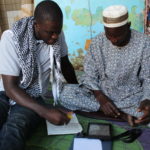Research is critical to understanding and addressing the problems seen in fragile and conflict affected states (FCAS). The scale and impact of these problems is staggering: in 2016 about 1.8 billion people were living in fragile contexts but this is predicted to grow to 2.3 billion (28% of total world population) by 2030; poverty is also increasingly concentrated in fragile ...» more
Governance, social development, conflict and humanitarian knowledge services

